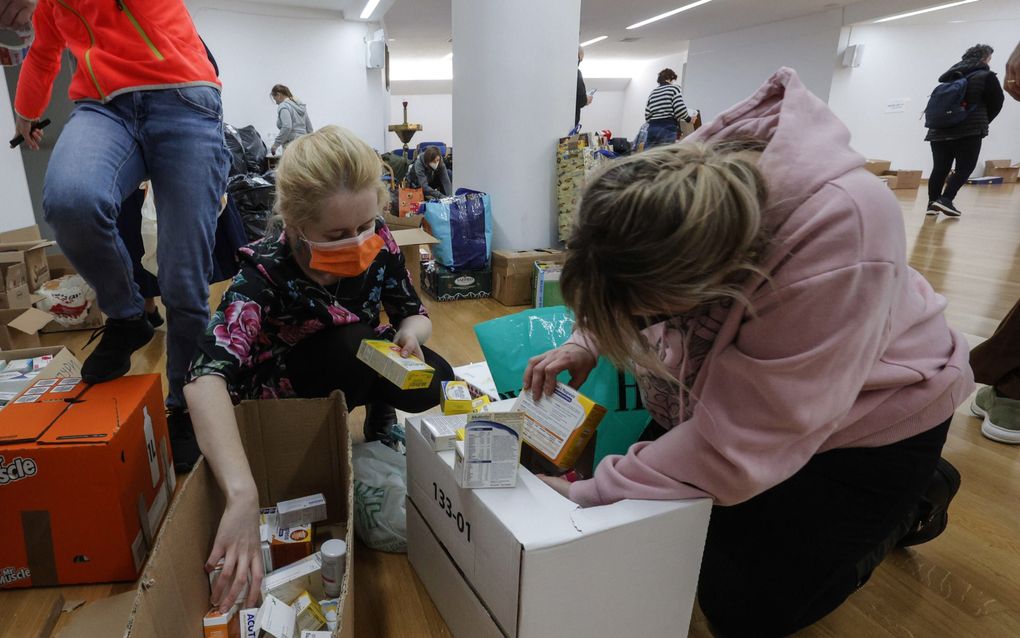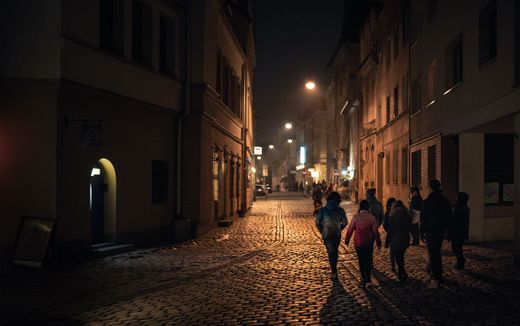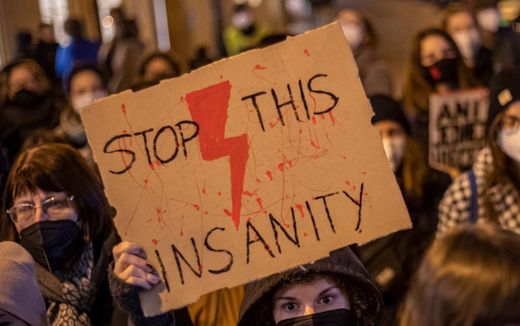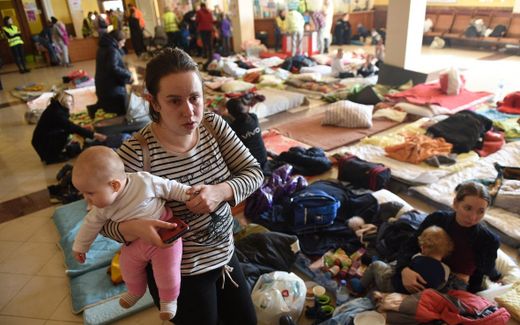Weekly Column: Protestant church in Poland could have done more for refugees
01-04-2022
Christian Life
Sashko Nezamutdinov, CNE.news

Church memberscollect the basic necessities to be distributed to Ukrainian refugees. Photo EPA, Giuseppe Lami
Christian Life
When the war broke out, I did not understand why I had to charge my phone two or three times a day until it suddenly hit me: the phone doesn’t stop ringing and I spend a lot of time talking over it.
Because I was born in Ukraine but lived in Poland for almost 12 years, I received phone calls and messages from both sides: from frightened Ukrainians trying to cross the border looking for help with temporary accommodation as well as from hospitable Polish people calling, texting and emailing me about lodging opportunities for people who were coming our way.
I remember the first days when the lines at the border were so big, some people had to wait 48 hours outside in the cold, standing before they could cross the border. Some people gave up because they were sleep-depraved and could not physically bear the circumstances.

Almost 4 million people have already left Ukraine as of the end of March. Most of them have fled to Poland. Many Ukrainians already have friends or family that live in Poland. Furthermore, the Ukrainian diaspora here has been growing since 2014 when Russia took on Crimea and Ukrainian economy deteriorated. That forced many young professionals to leave their homeland.
Poland and especially cities like Krakow, Warsaw and Wroclaw have become a natural point of entry for refugees who are fleeing the war. My home-city Krakow accepted almost 200,000 displaced people. The response of the Polish is unbelievable. Many people have opened their home to strangers, people with spare apartments allow the displaced to live there rent free. Polish cities are full of Polish and Ukrainian flags.
The government is subsidising hospitality to the displaced and small tokens of solidarity are shown to Ukrainians. They, for example, do not have to pay for public parking, and can take public transportation (city and country trains) for free just by showing their passport. Poland is going above and beyond to accept and help the Ukrainian people. And it’s important to note that the vast majority of these people are women and children, since the men aged 18-60 are being drafted into the army to fight and are not allowed to leave Ukraine.
In this tragic humanitarian disaster, I have been watching Polish churches trying to reach out and help the needy. Everyone has been doing something for the displaced people. I can’t think of any congregation that completely ignored the need.
Neglect Polish church now becomes visible
There was one thing however that I haven’t been able to get out of my mind throughout this whole time: the lack of infrastructure within Polish Evangelicalism. Many international mission organisations have moved their missionaries from Ukraine and Russia to Poland. They are all focusing on helping Ukraine by supplying of humanitarian aid as well as evacuating those who have lost a home or those who need to be moved because of the growing danger. These international organisations had to set up impromptu crisis centres and they are forced to work from Poland, which is a third country and culture for them.
The Polish churches could have done so much more if they had owned property and more people available to work full time for the Church. However, most churches in Poland are pastored by ministers who have a secular full-time job and a family. As a result, pastoring a church looks a little bit like a hobby that you do when you find a spare moment. In this, we are reaping off the fruits of neglection.
Poland has been tremendously overlooked by Western mission organisations and churches over the last couple of decades. When the Soviet Union collapsed in 1991, Western missionaries flooded Ukraine with the intention to support believers that had already been there and to plant churches. They can’t be blamed. We would have done it today as well.
Imagine if North Korea opened up tomorrow, of course, everyone would send missionaries there. But somehow in this whole hype of being a missionary in the former Soviet Union, “satellite states” like Poland got overlooked. As a result, the small churches became only smaller and the lack of resources and help from outside created an awful isolating effect. Furthermore, it made the local Evangelicals think that they are alone and insignificant. Protestant churches in Ukraine, on the other hand, have never stopped growing since the 90s and the financial support never stopped going that way.
Full church encourage Polish Christians
Over the last four weeks, I have seen a growing interest, not only in the desire to help the displaced Ukrainians who are temporarily staying in Poland, but also in the gospel work in Poland. Many Western Christian organisations realised how strategic Poland as a country is when it comes to modern Europe.
I have also seen how the Polish churches are encouraged by a very simple thing: they see that their churches are full on Sundays due to the fact that a lot of the displaced who come here are Christians (Protestants). When an average Polish Evangelical sees 40 people instead of 20 at a Sunday service in his or her church, the congregation suddenly stops looking like a cult and reminds you more of a large family and a large body of believers. Not to mention that the war and the response to the humanitarian need have created multiple opportunities for sharing the gospel by believing Poles who are now bringing their non-churched Ukrainian guests to church on Sunday.
There is this Polish saying: There is no bad thing that wouldn’t work for good. God in His sovereignty is reminding us that He is the only one Who holds everything under control. And I think it is no accident that He is doing that exactly after two years of the pandemic when we finally started feeling like things are getting back under our control.
Related Articles





